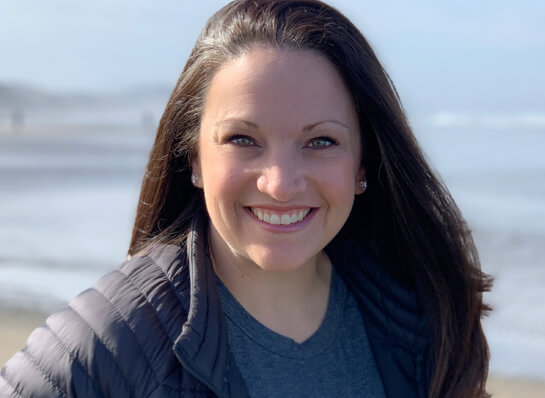Stop trying to improve productivity and squeeze more work into your day. Instead, use productivity tactics to get the right work done in less time.

Today’s workers, especially freelancers, entrepreneurs, and business owners are overburdened, overcommitted, overworked, and overwhelmed.
The number of tasks to be done, commitments to be honored, responsibilities to be fulfilled, and people to satisfy seem never-ending. The pressure to be productive is so high that the minute one thing is done another takes its place and getting ahead feels impossible.
Economic Policy Institute reports that the gap between productivity and pay has increased dramatically since 1979. While productivity has increased 61.8%, hourly pay has only increased 17.5% — productivity has grown 3.5x as much as pay, which means we’re all working harder and compensation for that work is out of whack.
Most people with bulging to-do lists use tricky tactics to feel productive.
- Adding things to to-do lists that aren’t priority items or even truly important items just to feel the rush of checking them off the list.
- Inventing pre-work tasks to simulate progress and forward movement — planning and prepping to work rather than working.
- Patting ourselves on the back for multitasking when really, everything is taking slightly longer.
- Doing other superfluous work under the guise that it’s clearing the decks for better focus and productivity later on.
Guilty? Yeah, me too.
The truth is that each of these behaviors is a form of procrastination and delusion.
Our tricks are “acceptable” excuses because we still feel like something is getting done and progress is being made. They are positive distractions because they’re setting us up for future success. Or at least that’s what we tell ourselves.
In reality, we’re just staying busy and putting off the real work and tricking ourselves into feeling good about it. And it all goes back to being overburdened, overcommitted, overresourced, overworked, and overwhelmed.
- When your brain is already full, it’s hard to focus, feel creative, and do work that meets your standards.
- When you’re exhausted, your body feels sluggish, and your mind feels fried, everything seems to move slower and take longer.
- When you’re not at your best, more mistakes are made, more frustration is felt, and more anxiety is created.
If you’re a member of Profitable Project Plan or Content Creators Club, you’ve attended Content Camp or signed up for any of my webinars or courses, or you’ve been in my community for any length of time, you how important I think productivity is.
Productivity is what powers happy, successful, sustainable, and satisfying lives. With that said, productivity can also damage your sanity and crush your soul if you approach it the wrong way. The effect productivity has on your life and business is a reflection of how you think about it.
In my early years of freelancing and business ownership, I had no idea how to run a business, let alone manage all of the work I sold. And to be clear, I sold far more work than any one person is capable of because I also charged far less than I should have for that work. I had a 100% close rate, my clients loved me, referrals poured in daily, the money was fabulous, and I was miserable.
Honestly, I didn’t know any better.
I didn’t know anyone else who ran a business like mine and I knew no other freelancers — and when I did finally join a networking group and met other women business owners and tried to share my challenges to get help, they scoffed at me. They chided me and said things like, “Oh poor you. Too much work? I wish I had those problems!”
Productivity: A Quest To Do More
I didn’t know how to articulate my problem well enough to get the help I needed and I wasn’t sure who to ask. Back then, business coaching and mentorship were fairly new concepts and I didn’t even know they existed. So productivity and time management became tools for doing more, being more, and getting more done. And I kept telling myself…
- If I could just finish the next thing, everything would get better.
- If I could just work a little longer, I could get a handle on things and get ahead.
- If I could just knock out a few more tasks, I could take a break.
Not in the evening, not on the weekends, and definitely not during a workday. Every spare moment was filled with tasks and to-dos and if one thing dropped out another was slotted in immediately. And this didn’t last months. It lasted years.
SEVEN YEARS to be exact.
For seven years, my brain kept saying one more thing — one more email, one more post, one more to-do, one more proposal, one more invoice, one more job.
In those seven years, I did a tremendous amount of work I was and am still proud of. I also learned how to do business better.
- I invested in education, masterminds, training, and business conferences to learn how to be a better business owner and better manage business operations and project workflows.
- I learned how to ask for help and brought others into my business.
- I invested in and leveraged software to automate business systems and processes for client care and project management.
There was just one problem. I still had a “must do more” mindset.
When I cut my web design project admin time in half, I filled that time with more work. When I offloaded tasks, I also filled that time with more work. It was a dangerous pattern that led to burnout. Those seven years culminated in a sobbing breakdown and for the first time, I said out loud to another human: I hate the business I built and I want to quit.
Productivity: A Quest To Do Less
It was at that moment, that I had to make a decision whether to fix things or move on. Eight years later I’m still here, still working with clients, and still juggling a lot of irons in the fire, so clearly fixing things became the priority — and the biggest thing I needed to fix was my own mindset.
I needed to rethink my entire approach to productivity. I needed productivity to no longer be a tool to get more done and fit more into a workday. Instead, I needed to start using productivity tactics as tools to get important work done first and in less time.
Productivity isn’t about fitting in more work, it’s about doing the work you planned to do more efficiently so it takes less time. With this approach, improved productivity leads to more margin and flexibility in your schedule — and less time working.
My new mindset: Being productive produces the expected results in less time, which helps me enjoy success with less sacrifice.
So rather than trying to cram in more work, I create a realistic, doable to-do list for the day, and work the plan as efficiently and effectively as possible with the goals of:
- Doing meaningful work I am proud of and getting that work done as fast as possible.
- Being intentional about every minute spent in front of a computer and making every minute worth it.
- Finishing my workday early so I can spend quiet time alone, quality time with friends and family, or time pursuing another goal or hobby.
Using productivity to better support your mental health also means thinking twice about how you take advantage of any unexpected time that appears on your calendar from canceled meetings or events.
Whether it’s a 30-minute meeting, a 90-minute meeting, or an all-day event, when things get canceled and unexpected blocks of time appear in your calendar, it’s easy to immediately fill that time with more to-dos and more work. If you’re anything like me, that’s your initial gut reaction, especially if quitting early is a goal for the day.
But is that really the best choice?
I find myself reconsidering how I spend that “surprise time” more often as I get better about embracing breaks to step away from work and recharge.
- Sometimes taking a short nap, relaxing in the sun by the pool, going for a walk, making a snack, working on a puzzle, or doing a craft of some sort is a better idea.
- Other times, knocking out non-deadline-driven tasks can be just what you need to create momentum and find your groove.
- Catching up on bookmarked articles, listening to your backlog of podcast episodes, cleaning out your inbox, and even organizing digital files can feel incredibly satisfying and energizing.
Ultimately, your views on work and productivity will shape how you structure and plan your day and how you fill open blocks of time.
The question is: Will you focus on getting more work done and filling your day with more tasks, or, will you focus on doing exactly the work you planned to do in less time so you can enjoy the life you’re working hard to create?
The choice is yours.
